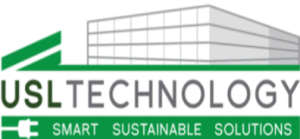
Local Law 87
Audit & Retro-Commissioning
Local Law 87 requires large buildings to conduct an energy audit once every ten years, and to undertake energy-efficient maintenance practices as part of a retro-commissioning process.
Smart energy-saving improvements pay for themselves, but an energy audit is required to determine which ones work in a specific building. Large buildings must complete an energy audit every ten years and implement energy-efficient maintenance methods as part of the retro-commissioning process, according to Local Law 87 of 2009.
What are my options?
Energy Audit
An energy audit is a thorough examination of a building’s energy equipment, systems, envelope, and operations to identify cost-effective energy-saving options and strategies (including cost estimates and payback). An energy audit is used to determine which equipment and systems a building might consider purchasing. New, better, smarter equipment is frequently recommended, which would necessitate a capital outlay.
Energy audits cost about 15 cents per square foot on average. The law will apply to the central systems of buildings in order to reduce the impact on individual tenants and ensure that the owner who makes the investment reaps the benefits.
Building Upgrades
Instead of the audit, large buildings with basic systems will be able to comply with the regulation by implementing a set of pre-approved energy efficiency measures. Improvements to heating and cooling systems, as well as upgrades to hot water heaters, roofing, windows, and electric appliances, can help building owners save energy. Installing solar panels and switching to less polluting energy sources can also help them lower their carbon footprint.
Retro-Commissioning? (RCx)
Retro-commissioning focuses on existing equipment and systems in a building. The emphasis is on repairing what already exists. Retro-commissioning is the process of testing and fine-tuning systems in an existing structure in order to enhance energy efficiency.
Compliance
NYC Department of Buildings is responsible for enforcing compliance. Every 10 years, owners must complete an energy audit, retro-commission their buildings, and file an Energy Efficiency Report. The Energy Efficiency Report (EER) forms must be submitted via email by December 31st of the building’s filing year.
Failure to Comply
Failure to comply with LL87 can result in fines of $3,000 for the first year and $5,000 for each subsequent year. The diagram below shows how non-compliance costs evolve over time:
|
Filing Year Non-Compliance
|
Dec 31, 2020
|
Dec 31, 2021
|
Dec 31, 2022
|
Dec 31, 2023
|
|---|---|---|---|---|
|
Total Per Date
|
$3,000
|
$5,000
|
$5,000
|
$5,000
|
|
Cumulative Total
|
$3,000
|
$7,000
|
$12,000
|
$17,000
|
Book A Consultation to learn more how we can help you comply with NYC local laws.
